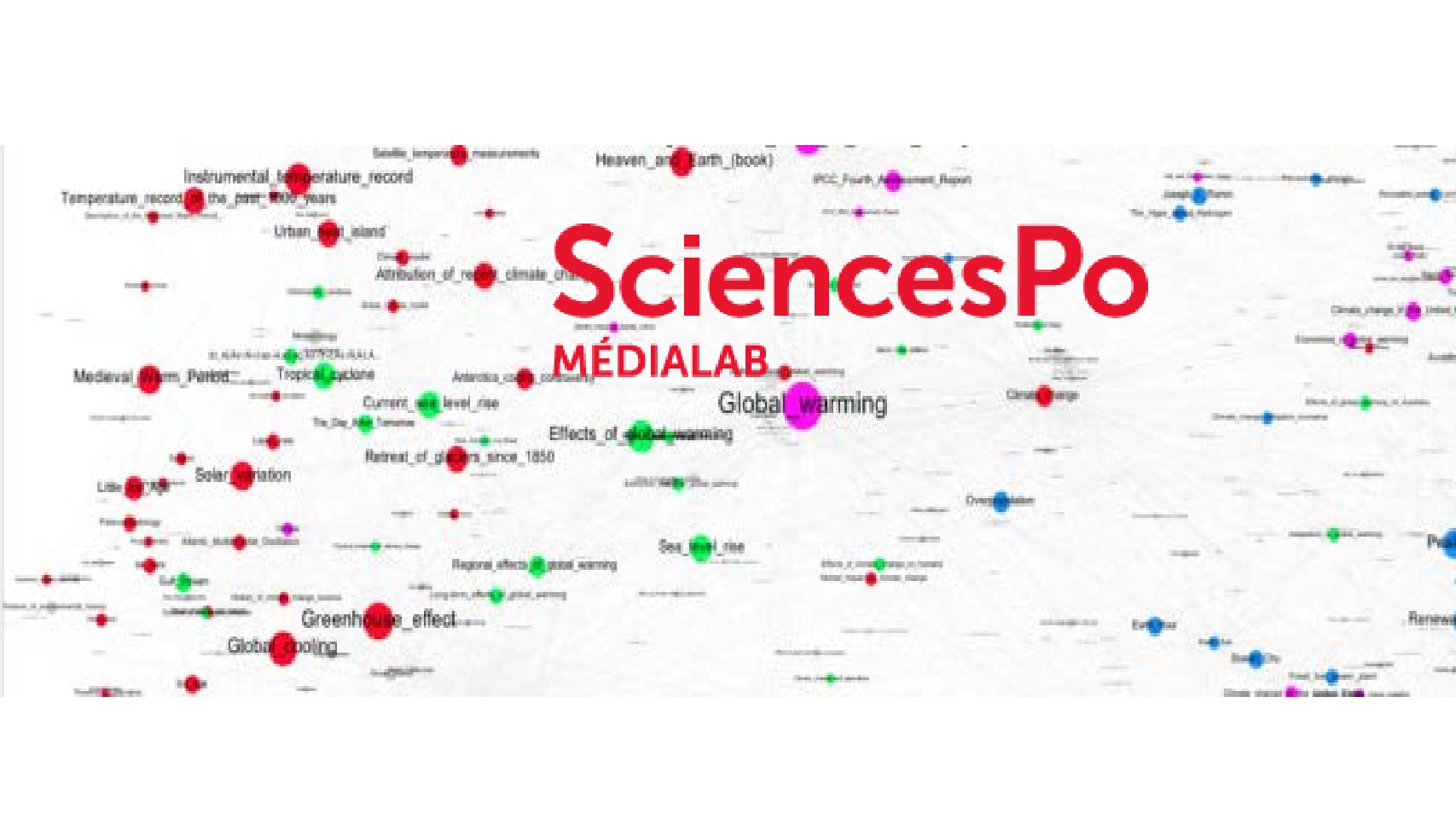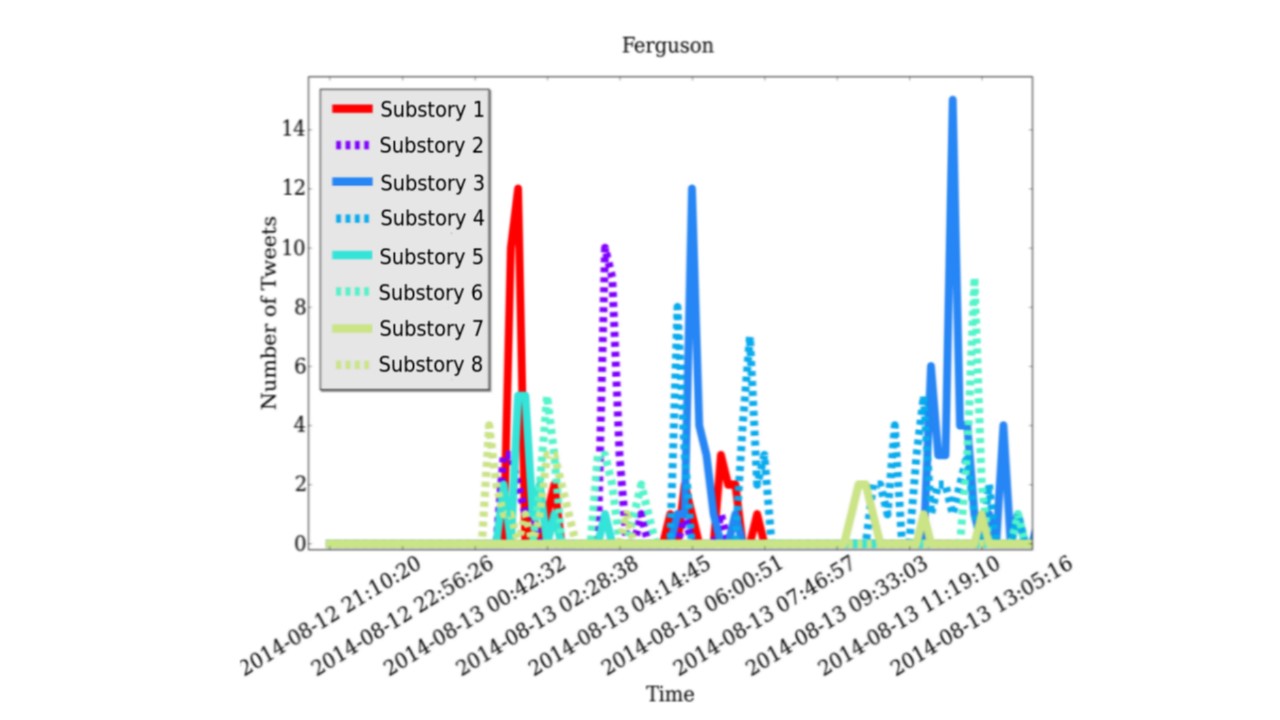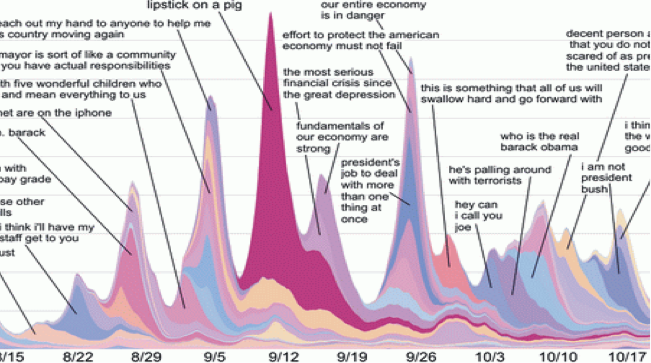ANT

D. Boullier (2018) Medialab Stories: How to Align Actor Network Theory and Digital Methods
Big Data & Society (2018). In this paper, the story of Sciences Po Médialab told by Venturini et al. (2017) is discussed and completed by demonstrating the incoherence in the choice of digital methods at the Médialab from the actor network theory perspective. As the Médialab mostly used web topologies as structural analysis of social […]
En lire plus
D. Boullier (2018) Distribution du pouvoir d’agir des entités sociales dans les études informatiques sur Twitter
Boullier, D. (2018) » Distribution du pouvoir d’agir des entités sociales dans les études informatiques sur Twitter », Sociologie et Sociétés, vol. 49/ 2. Le terrain Twitter constitue un prototype très attractif pour les recherches en informatique qui veulent traiter de processus sociaux : malgré son caractère de haute fréquence qui favoriserait spontanément l’étude du pouvoir d’agir […]
En lire plus
BOULLIER, D. (2017), « Big data challenge for social sciences and market research: from society and opinion to replications »
in Cochoy, F., Hagberg, J., Petersson McIntyre, M. and Sörum, N. (eds.), Digitalizing Consumption, Tracing How Devices Shape Consumer Culture, London and New York, Routledge. A new generation of social sciences is knocking at the door. To put it simply, marketing and computer sciences take ownership and generate monitoring of the tools for social […]
En lire plus
Boullier, D. (2017) « Pour des sciences sociales de troisième génération : des traces numériques aux réplications »
in PM Menger et S. Paye (eds.), Big data et traçabilité numérique. Les sciences sociales face à la quantification des individus, Paris, Open Editions Press (Collège de France), pp. 163-184. Ce qui est en jeu est la construction d’une offre de sciences sociales de troisième génération qui n’est pas garantie. La tendance à la […]
En lire plus
BOULLIER, D. (2015) » Cosmopolitics: “To Become Within”
From Cosmos to Urban Life » in A. Yaneva (ed.) What Is Cosmopolitical Design?, Farhnam: Ashgate. The only way to get into cosmopolitics is to become embedded in some situations either as an ordinary actor, or with the light equipment of ethnography, or else “to become within” (Haraway 2003). This compels one to have some […]
En lire plus
Boullier, D. (2015) « Les sciences sociales face aux traces du Big Data. Société, opinion ou vibrations? »
Revue Française de Science Politique, vol. 65, n°5-6, Oct- Déc 2015, pp. 805-828. Nous posons ici les prémisses d’une offre de sciences sociales de troisième génération dans la lignée de la théorie de l’acteur-réseau et de Tarde qui en avait annoncé les principes. Pour l’instant, la tendance à la fin de la théorie et […]
En lire plus